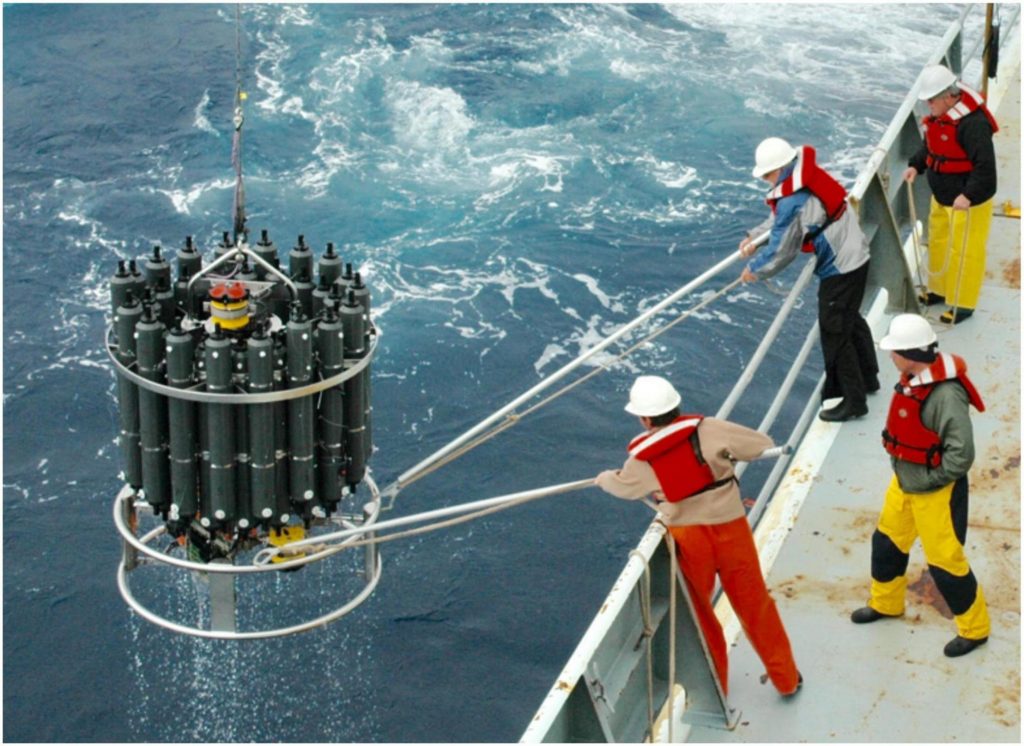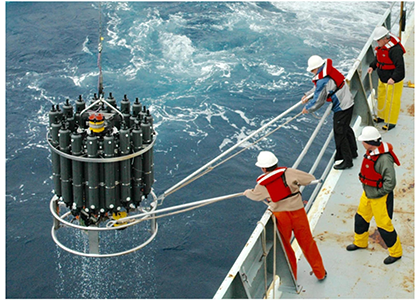Effective data management is paramount in oceanographic research. The ocean is a global system, and research to understand regional and global oceanographic processes often involves compiling cruise-based data from different laboratories and expeditions.
The new international data standard covers column header abbreviations, quality control flags, missing value indicators, and standardized calculation of numerous parameters. Released alongside this paper are newly developed tools to calculate some oceanographic properties, and recommendations for dissociation constants of the seawater carbon system calculations. In addition, the use of “content” instead of “concentration” is recommended for mass-based properties.

The column header abbreviation standards presented here are based on the 30-year-old Exchange format of the World Ocean Circulation Experiment (WOCE) Hydrographic Program (Joyce and Corry, 1994; Swift and Diggs, 2008) with updates and refinements by the Climate and Ocean-Variability, Predictability, and Change (CLIVAR) and the Carbon Hydrographic Data Office (CCHDO) of the Scripps Institution of Oceanography. This format has been used as a data file standard for discrete chemical oceanographic observations for several decades.
The new international data standards will facilitate data sharing, quality control, and synthesis efforts to promote climate change and ocean acidification research at regional to global scales. This product is a significant step forward in terms of (a) creating common data standards for the international oceanographic research community to streamline data management, quality control, and data product developments; and (b) bringing the subject matter expertise from the research community to the data management world.
Authors (partial, see full list on publication)
Li-Qing Jiang (Univ Maryland, NOAA/NCEI)
Denis Pierrot (NOAA/AOML)
Rik Wanninkhof (NOAA/AOML)
Richard A. Feely (NOAA/PMEL)
Bronte Tilbrook (CSIRO Oceans and Atmosphere and Australian Antarctic Program Partnership)
Simone Alin (NOAA/AOML)
Leticia Barbero (Univ Miami; NOAA/AOML),
Robert H. Byrne (Univ South Florida),
Brendan R. Carter (Univ Washington, NOAA/PMEL)
Andrew G. Dickson (Scripps Institution of Oceanography)
Jean-Pierre Gattuso (CNRS, Laboratoire d’Océanographie de Villefranche, Sorbonne Univ; Institute for Sustainable Development and International Relations, Sciences Po, France)
Dana Greeley (NOAA/PMEL)
Mario Hoppema (Alfred Wegener Institute Helmholtz Centre for Polar and Marine Research, Sciences Po,)
Matthew P. Humphreys (NIOZ Royal Netherlands Institute for Sea Research, Netherlands)
Johannes Karstensen (GEOMAR Helmholtz Centre for Ocean Research Kiel, Germany)
et al.




